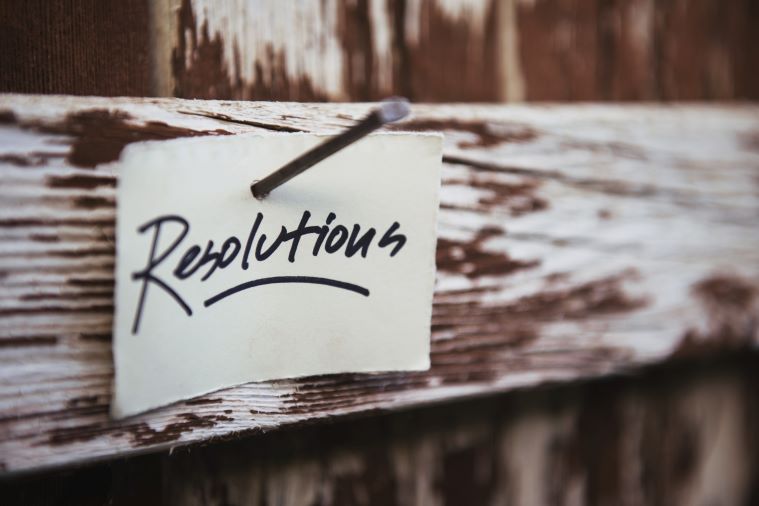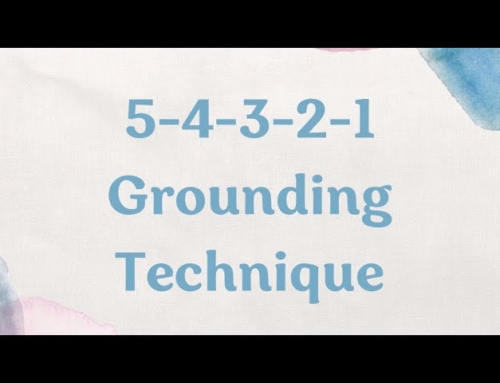New Year’s Resolutions: Set Intentions You Can Actually Stick To

Photo by Tim Mossholder on Unsplash
Starting a new year beckons thoughts of renewal. New year’s resolutions become front and center in minds and conversation. It can be the perfect time for fresh starts; a time for reconnecting with goals or ideas that perhaps got lost in the busyness of life. It’s a time to start something entirely new that you’ve always wanted to embark on, but just haven’t attempted yet.
Whatever you have in mind, you likely have thought through some ways that you want the coming year to be different than the last and feel hopeful for a better year overall. Feeling a sense of inspiration towards change can be a genuine opportunity to embark upon a journey of turning imagination into action.
At the same time, the motivation for change can also be followed quickly by feelings of disappointment, failure, and shame. Good intentions and a sense of hope get even more complicated when trauma plays a role in the tangled web of the psyche. This can ultimately lead you into familiar patterns of self-sabotage.
The desire to heal and overcome the demons of the past is woven into the concept of resolving to change. However, the paralyzing and persistent effects of trauma can create obstacles that feel impossible to overcome. You might find yourself setting overly ambitious goals in an effort to change all of it at once which inevitably leads to perceptions of failure and hopelessness. This can lead you to feeling broken, depressed, and trapped.
The problem is not that you’re broken or that you can’t change or heal. It’s that you need better support and more realistic goals.
It’s a common mistake to get swept up in the excitement of New Year’s and go big.
Positive intentions and a willingness to try are certainly strong attributes! However, unrealistic hopes, disguised as resolutions, can be a first step in a shame cycle that ultimately reinforces negative core beliefs. This year, instead of setting yourself up to feel like a failure, consider the following ideas to set yourself up for success!
What to Watch Out for
All-or-nothing thinking is common for many people. Trauma survivors are particularly susceptible to this way of thinking. It is linked to the nervous system’s response to danger, the reaction of fight, flight or freeze. In the case of complex trauma, a heightened sense of threat persists and becomes automatic, even outside of situations that are dangerous. This increases things like hypervigilance and quick reactions, for better or worse. When stressed and in fight/flight, there isn’t much time or space for slow consideration. Thoughts become binary to allow for quick decisions and judgments.
The problem is that this kind of thinking can result in you believing yourself a failure if you don’t quickly succeed in changing all the things right away. This is extreme all around and is a set up for disaster. Change requires patience, nuance, and flexibility.
Allowing Room for Growth and Change
Automatic thoughts and behaviors happen, and familiar patterns play out without you being very conscious of what is happening. It takes considerable effort to slow down and contemplate what you’re doing, but it is entirely possible to do so. To rewrite your narratives, it will take time, patience, and consideration.
If you joined an advanced gym class after not exercising for years, you would likely pull a muscle and get laid up for days or weeks. Remember that small starts lead to tiny victories. So rather than something like, “I’m going to start waking up two hours earlier every day and spend the first hour meditating and the second hour exercising, and then I’ll take my shower and eat breakfast…”; instead think of starting the day a half an hour earlier, or even just 15 minutes earlier, with time to sit for a 5 minute breathing exercise. That’s it.
Allow yourself some time with this to feel any changes in the restructuring of your morning. Take note of any small changes you may become aware of and consider the slow, repetitive process. This is how new habits form. If you can stick to your new routine, congratulate yourself for the victory! If you slip up, forgive yourself for being a human who is doing the best they can, rather than falling into thoughts of failure and shame.
A More Realistic Approach to the New Year’s Resolution
Rather than setting yourself up for a sense of failure by committing to goals that involve unrealistic abilities and expectations, consider setting some intentions for yourself.
Intentions are less specific and allow flexibility and room to play with an idea. This is a more practical step into growth and change that allows room for setbacks.
Shame, guilt, and isolation are common characteristics of trauma that seep into the survivor’s mindset. Think about treating yourself with compassion and curiosity, rather than being guided by survival instincts. They may have served you well at times, but they can also reinforce certain rigid expectations that are adding to a sense of feeling stuck and just generally bad about yourself.
Consider the areas of your life where you’ve recognized patterns that you would like to work on changing. Think about starting with some broad issues that apply to your routines and set an intention to shift your habitual behaviors towards a more mindful, intentional approach. Go gently into practicing new approaches to change, with an attitude of forgiveness rather than punishment.
Dr. Megan Johnson suggests getting in touch with your values and setting your intentions around some of them, rather than jumping on board with trendy ideas that you might not actually relate to. She suggests setting realistic boundaries around those values, rather than setting unachievable ones that you are unlikely to be able to adhere to.
Evaluating what is genuinely important to you also helps with practicing self-awareness and acceptance; a benefit to your well-being beyond change. If it turns out that you prefer taking walks over a grueling gym class, you’re more likely to stick to a daily walk, rather than spending money on an unused gym membership.
Practicing gratitude is also essential when focusing on what needs to change. Too much energy spent on what’s wrong can be demoralizing. Make a regular practice of considering the things that you do have and what you appreciate about yourself, however small they may be.
Keep in mind that, as with most things in life, creating change often requires you to enlist the help of others. Trying to make your way on your own can feel lonely. Having support to bounce your ideas off of and hold you accountable can be a helpful reminder of what you are working towards. Whether it’s a friend, family member, or your therapist, share your intentions with someone else in your life.
Lastly, write down what you’ve been thinking about and the decisions you’ve made based upon your self-explorations. The reminders can help to reinforce what you know to be true, especially in those times of self-doubt or when things feel overwhelming. Don’t forget to include the things you are grateful for in yourself!
Most importantly of all: Have a Happy New Year!!!








